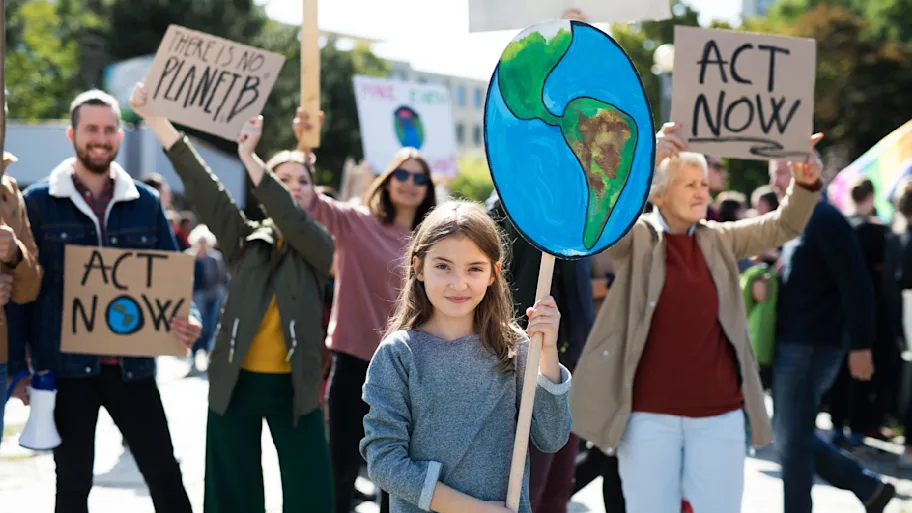
- Science news
- Frontiers news
- AI, open science, and the extreme weather pandemic: Takeaways from SXSW 2024
AI, open science, and the extreme weather pandemic: Takeaways from SXSW 2024

Every year, creatives, innovators, and visionaries from around the world gather in Austin, Texas for a celebration of human creativity at South by Southwest (SXSW). The week-long conference offers a vibrant convergence of tech, film, music, education, and culture. Over 450 sessions, from keynotes and feature speakers to panels and workshops, enable participants to encounter cutting-edge ideas, discover new interests, and network with other professionals from across industries.
Among the topics of focus for this year’s SXSW was climate change. A dedicated ‘track’, or lineup, of sessions explored the most promising ideas on mitigating or adapting to the effects of global warming and in-depth coverage of the consequences of unpredictable weather patterns and rising ocean levels.
Open access publisher Frontiers spoke to the importance of open science as part of the transformational change needed to avoid climate-related disasters as part of panel titled, “Can AI Solve the Extreme Weather Pandemic?” Moderated by Amy Freeze, meteorologist and anchor of Weather Command on Fox Weather, the panel featured:
Julia Kostova, US director of publishing, Frontiers
Rayid Ghani, professor, machine learning department, Carnegie Mellon University
Isabel González Whitaker, associate vice president for public engagement, Moms Clean Air Force / EcoMadres, Environmental Defense Fund
According to the National Centers for Environmental Information, the United States has sustained 383 weather and climate disasters since 1980 where overall damages/costs reached or exceeded $1 billion. The frequency of such disasters continues to increase. In the 1980s, there was a total of 33 events, averaging 3.3 per year. Last year, in 2023 alone, there were 28 events. And as of May 2024, there have already been seven confirmed weather and climate disasters with losses exceeding $1 billion each.
In addition to the increasing frequency, climate change is also supercharging the intensity of extreme weather that leads to these disasters -- most notably the rise in vulnerability to drought, lengthening wildfire seasons; the potential for heavy rainfall becoming more common; and sea level rise worsening hurricane storm surge flooding. Given the compounding risks, there is an urgent need for transformational change to avoid a pandemic of extreme weather.
Taking an 'all-hands-on-deck approach'
This change is one that AI can be a tool in facilitating, said Julia Kostova, Frontiers’ US director of publishing. “[The situation] is dire and what is needed is an all-hands-on-deck approach. Part of the solution is going to lie with science and technological innovation and development in order for us to be able to address and combat the crisis we are faced with.”
She emphasized the great potential of AI to analyze vast quantities of data, synthesize this data, find patterns, and predict trends. All are abilities that scientists have successfully put into practice when it comes to predicting high-impact weather events like tornados or aiding conservation efforts to save species affected by climate change.
“[AI] is a technology that can help us grasp and improve our understanding of climate change, because [climate change] is a complex series of events, of systems, of boundaries being crossed,” Kostova said. “We’re not just tracking one measure. So, from that perspective, this is a technology with tremendous potential. However, the development of effective solutions is going to be predicated on access to the latest scientific breakthroughs, and at scale.”
To illustrate her point, Kostova shared that only about half of climate-related research published over the last five years is openly accessible. The remaining research is locked behind paywalls, excluding scientists, practitioners, industry, policymakers, and the public from being able to use and build on this knowledge. The most effective climate action will involve all these stakeholders being able to access the latest information and insights.
Opening science is not a new concept. The Covid-19 pandemic served as a prime example of what is possible, with stakeholders coming together to share knowledge, accelerate vaccine development, and save lives. The climate crisis should be treated in a similar manner.
It's for this reason that the Frontiers Research Foundation launched the Open Science Charter, calling upon governments, research institutions and funders, the scientific community, and citizens everywhere to support mandatory open access to all publicly funded scientific knowledge by 2030. These open access mandates are the greatest accelerator of the wide spectrum of science solutions needed to usher in an ecologically sustainable world.
Panelists agreed on the benefits fully open science would have. Isabel González Whitaker, associate vice president for public engagement of Moms Clean Air Force / EcoMadres, referenced her own experience with her organization and how unrestricted access to research has a direct link to civil engagement and participation in democracy. “The value of that cannot be underestimated,” she said.
AI and climate solutions
Amy Freeze, meteorologist and anchor of Weather Command, added, “When we share research, we begin to open the door for solutions and innovations that can have a butterfly effect.”
Returning to the topic of AI and the climate, panelists focused on what needs to be done to effectively implement AI in order to reduce climate disasters and offer more climate-related solutions. There was a consensus to go back to basics, exploring how AI is developed and used to ensure it is designed in a way that best contributes to positive solutions.
They were careful to note that AI is merely a tool that cannot replace human action. Rather, the predictions and monitoring insights that AI can provide should be used to make informed decisions, whether driving a particular change in behavior or enacting a specific policy. Achieving this requires several considerations when designing effective AI tools. Alongside making science open and using accessible, peer-reviewed research to train AI systems, there is a need to ensure this technology is applied in an equitable manner and is designed with the impacted communities in mind.
“The key here is that the technology exists, what’s missing is [that] the people developing the technology are building just the technology,” said Rayid Ghani, professor at Carnegie Mellon University. “[We need to connect] the researchers with people on the ground so that the technology that gets developed is designed for those values and those needs, rather than a general purpose, one-size-fits-all.”
Through this combination of accessible scientific knowledge, global collaboration, and political will, it is possible to manage and reverse the threats of extreme weather and climate change with the support of AI.
In her conclusion, Kostova urged all members of the public to get involved. “The climate crisis is even more existential a crisis than [COVID-19],” she said, “and if we [opened science] for COVID, then it stands we should do this for the climate.”
Read and sign the Open Science Charter here.
About the Frontiers Research Foundation
The Frontiers Research Foundation is a not-for-profit organization based in Switzerland, which was founded by Kamila and Henry Markram, neuroscientists from the Swiss Federal Institute for Technology (EPFL). It raises funds to support programs that accelerate scientific solutions for healthy lives on a healthy planet.
About Frontiers
Founded in 2007, Frontiers is the 6th largest scientific publisher. We publish rigorously peer-reviewed, quality-certified research by the world's top experts. Scientists empower society and our mission is to accelerate scientific collaboration by making science open. We place the researcher at the center of everything we do and enable the research community to develop the solutions we need to live healthy lives on a healthy planet. Featuring custom-built technology, artificial intelligence, and rigorous quality standards, our research articles have been viewed more than 2.7 billion times, reflecting the power of research that is open for all.






